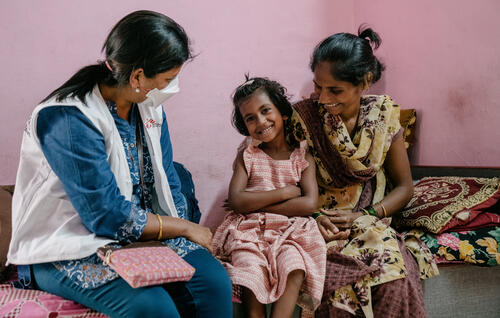As one of the world's deadliest infectious diseases, TB kills 1.3 million people per year; over 200,000 of them are children. Every three minutes, a child dies of TB.
The TACTiC project – Test, Avoid, Cure Tuberculosis in Children – is a multifaceted project led by Médecins Sans Frontières (MSF). Its goal: to reduce deaths from tuberculosis in children, by increasing the number of children put on treatment and preventive treatment.

60%
6%
96%
96%
Why TACTiC?
- The use of treatment decision algorithms, making it possible to diagnose children with or without X-rays, and to decide on rapid treatment even in the absence of specialised personnel.
- Shorter curative treatment regimens for non-severe, drug-susceptible tuberculosis. Children with non-severe tuberculosis will be offered a more appropriate, shorter and less costly 4-month treatment regimen, rather than the standard 6-month regimen.
- Shorter preventive treatment (3 months) for family contacts, which are more convenient and easier to take than longer treatments.
The introduction of these recommendations will have a major positive impact on the management of TB in children, ultimately leading to reduced deaths from TB.
The MSF TACTiC project will seize the opportunity of these new WHO recommendations to improve the management of TB in MSF projects and beyond, especially those non-specialized in TB, which have a high burden of undiagnosed TB .

The pillars of the TACTiC project
- Implementation
- Operational research
- Advocacy
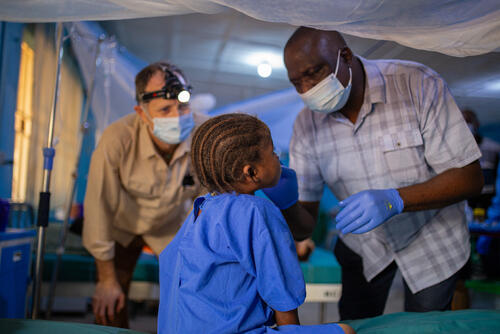
1. Implementation
Field implementation of the 2022 WHO recommendations on paediatric TB. We aim at supporting our teams to reduce the gaps in paediatric TB diagnosis and treatment by:
- Offering support and guidance to MSF teams and to their partners in ministries of health/national TB programmes to assess, plan and design adapted management of paediatric TB, incorporating WHO recommendations
- Strengthening the capacities of medical and paramedical staff in TB, especially in non-specialised settings, through training, workshops at local and national levels, and access to telemedicine.
- Elaboration and dissemination of practical, and easy to use tools for evaluation, implementation and monitoring, that are adapted to our operations.
Implementation will take a phased approach, progressively scaling up to more projects, more countries and enlarging the number of new recommendations implemented, whilst trying to keep a sustained quality of care for paediatric TB cases in all projects of intervention.
2. Operational research
A key component of the TACTiC project is operational research, conducted in collaboration with MSF’s epidemiological arm, Epicentre. The studies will contribute to knowledge on implementing new recommendations and stimulate further implementation and scaleup. These studies are:
Paediatric algorithm study
The overall aim of the study is to evaluate the diagnostic performance and assess the feasibility and acceptability of implementing the new 2022 WHO treatment decision algorithms for pulmonary TB in children under 10 years old under programmatic conditions.
It is a multicentric prospective study conducted in five countries (Uganda, Niger, Nigeria, Guinea, South Sudan) with qualitative and quantitative methods. The results of these studies, along with analyses of the programmatic impacts from the implementation phase, will guide a user-centred approach for our MSF projects and our partners in ministries of health and national TB programmes.
Four-month treatment regimen for children with non-severe drug susceptible TB
The aim of the study is to assess the feasibility and acceptability of the implementation of the four-month treatment regimen for children with non-severe drug susceptible TB. Despite the treatment using the same readily-available formulations, just for a shorter duration, the four-month regimen is yet to be widely implemented. This study will identify possible barriers and solutions to encourage further roll out of the shorter regimens for children with non-severe drug susceptible TB.

3. Advocacy
TACTiC’s advocacy strategy aims to improve access to lifesaving TB care for children through advocacy with countries, funders and other stakeholders. This is with the aim to align national policies with the latest WHO recommendations for the management of paediatric TB, and for sufficient resources to facilitate implementation of the policies in health care facilities. We also advocate for more attention to children with TB in global political agendas and events, and for more research and development for diagnostic tools adapted to children.
Specific activities are:
- Local and national advocacy: TACTiC has surveyed alignment of national policies with WHO recommendations on preventing, diagnosing and treating paediatric TB in 14 countries with a high burden of TB and where we provide TB care: Afghanistan, Central African Republic, Democratic Republic of Congo, Guinea, India, Niger, Nigeria, Pakistan, Philippines, Sierra Leone, Somalia, Republic of South Sudan and Uganda. Data collection took place between October 2023 and May 2024, and the report will be published on 15 October 2024. The report has already had positive impact in stimulating discussion and highlighting gaps, and will contribute to local and national roadmaps to improving the management of TB in children.
- Global advocacy: Putting the challenges and needs in providing care to the children with TB into the global political agendas. In 2023, the TACTiC team has successfully advocated for a specific paragraph on paediatric TB in the second-ever United Nations Political Declaration on tuberculosis. We will continue to advocate that commitments from world leaders are translated into actions on the ground to accelerate access to TB care for children. This includes access to the required diagnostic tools and the availability of child-friendly formulations of the drugs needed to treat and prevent TB in children.
- Advocacy for more research and development: High numbers of children die from TB every year in part because the disease is chronically under-diagnosed, with diagnosis reliant on tools and approaches that are insufficient and ill-adapted to the needs of children. We desperately need more research and development for TB diagnostics that are specifically designed for children, and are more effective than what is currently available. TACTiC will advocate with industry, developers and funders for R&D of new and better tools to aid in the diagnosis, prevention and treatment of TB in children.
Results and analysis
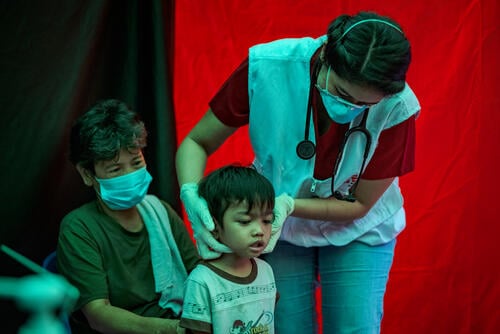
TACTiC: Test, avoid, cure TB in children - a survey of paediatric TB policies
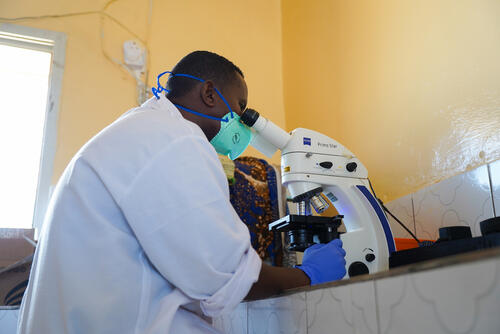
Cross-cutting lessons: results from the TB ALGO PED study
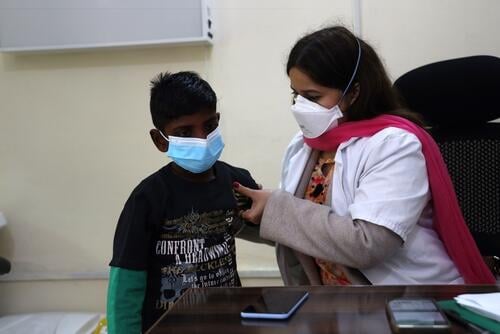
Countries and donors must sustain investment in fight against tuberculosis in children

TB treatment decision algorithms: promising early data highlight their added value in diagnosing children

Cross-cutting lessons: results from the TB ALGO PED study

New approach improves diagnosis and treatment of children with TB in Sierra Leone
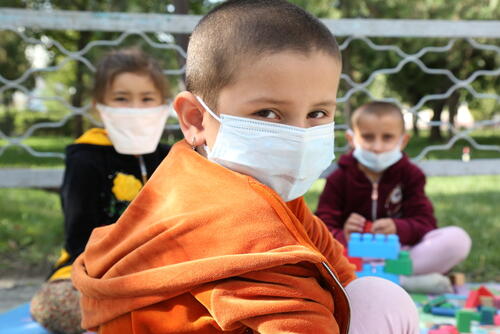
Diagnosing Paediatric TB: Challenges and Needs
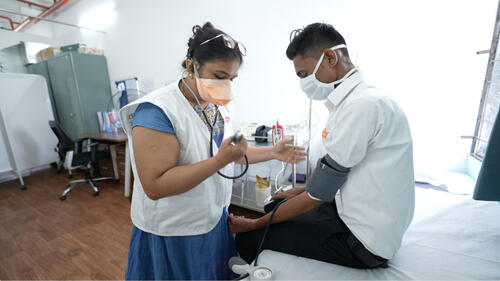
MSF statement on EndTB strategy

MSF warns governments are failing to test, treat and prevent TB in children
